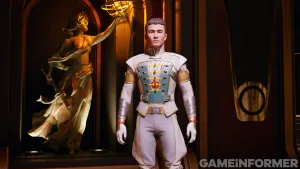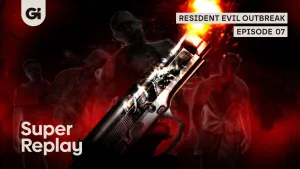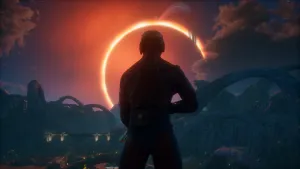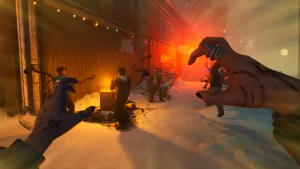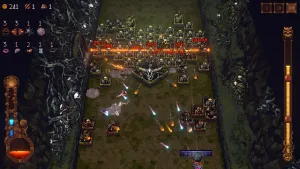Beyond Good and Evil: Choices That Make a Difference
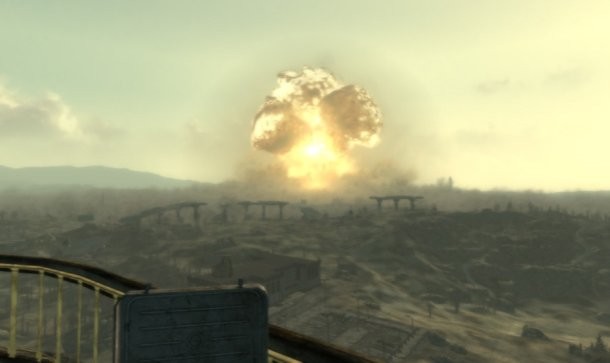
By Joe Juba and Jeff Cork
Gamers often need to choose between various outcomes, weighing the rewards and consequences of their actions. But how many of those choices actually matter? If you’re just deciding on the outcome of a single quest, it’s hard to feel like your choice has a real impact. However, some games present decisions that send ripples throughout the entire experience, affecting more than an arbitrary morality meter. In this feature, we take a look at the games with choices that actually mean something.
As you might assume, this feature contains massive spoilers. Proceed with caution. Radiata Stories
Radiata Stories
This clever RPG from Tri-Ace may not have amassed a huge following, but it does face players with a compelling choice that has a drastic effect on how you experience the game. With a significant portion of the story remaining, protagonist Jack Russell must either side with his love interest (Ridley) and a group of non-humans, or join forces with the humans in an imminent war. Each faction has a huge roster of exclusive recruitable allies, different story points, and a unique ending. Even more interesting is that any party members that you’ve already recruited from the opposing side are no longer available. Picking sides is nothing new to gaming, but since Jack’s choice happens with about 1/3 of the game left to go, it isn’t just a “load up the save, make a different choice, and watch the other ending” scenario.
 Chrono Trigger
Chrono Trigger
Magus and Frog are, without question, two of the coolest party members in Chrono Trigger. Unfortunately, players must decide which of these two characters ultimately deserve their loyalty. After the destruction of the Kingdom of Zeal, Magus (an antagonist up to this point) can be found on a snowy precipice, and offers an unlikely alliance. He is an extremely powerful mage, and he vows to travel with the party and help defeat Lavos…but his fealty comes at a price. If, instead of fighting Magus, you agree to let him join you, Frog can never be human again. Since Magus placed a curse on Frog years ago, the only way to break it is to defeat Magus in combat – thus negating your ability to recruit him. Ultimately, players need to weigh what is more important: helping out a noble and loyal party member, or gaining the best (albeit most evil) spellcaster in the game.
 Metal Gear Solid
Metal Gear Solid
It just seems like a minigame at first – Revolver Ocelot tells Snake to quickly press the action button in order to survive torture. He tells Snake that failure will forfeit the captive Meryl’s life, but bad guys are saying junk like that all the time. As it turns out, Ocelot wasn’t kidding. If you make it through the torture, Snake and Meryl have a touching reunion near the end of the game. If you fail or surrender, Meryl will be dead, leaving Snake to escape Shadow Moses island with Otacon – complete with an awkwardly romantic snowmobile ride.
 Fallout 3
Fallout 3
Fallout 3 is full of choices, but one of the most important ones you can make isn’t even presented as a moment of decision. Once you have access to Galaxy News Radio, you can murder Three Dog the entertaining radio jockey who provides on-air entertainment chronicling your actions in the wasteland. Normally, Three Dog’s commentary is the primary vehicle for defining the tone of Fallout 3, establishing a sense of what the world has become, how people are surviving, and how others are affected by your choices. If you kill Three Dog, Galaxy News Radio doesn’t go off the air; instead, the charismatic host is replaced by his technician, Margaret. She is a terrible host, and does nothing to enrich the Fallout 3 experience (apart from reminding you of how you killed Three Dog). Of course, if you’re stuck listening to Margaret, you only have yourself to blame.
 Super Tecmo Bowl
Super Tecmo Bowl
At
the beginning of the game, players have to pick a team. Those who
select Indianapolis are essentially forfeiting their session.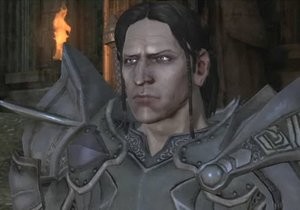 Dragon Age: Origins
Dragon Age: Origins
In a world usually overrun with black and white decisions, Dragon Age: Origins gleefully wallows in the gray. Players constantly find themselves weighing arguments from different factions, and most of the time they each have genuinely decent cases. Even one of the game’s main villains, Loghain, is more than just the one-dimensional traitorous scum players had been led to believe. Late in the game we learn more about his motivations for betraying the Grey Wardens (and the player), and they actually make sense. Rather than the power-mad general we’d been set up to expect, he’s actually a fiercely loyal leader desperate to keep his nation safe. When his time of reckoning arrives, it’s just as complicated. Players can choose to execute him, either themselves or by party member Alistair, who blames Loghain for his mentor’s death. Or, players can have Loghain undergo the Joining ritual, which would have him become a Grey Warden. If that choice is made, a devastated Alistair refuses to continue along the player’s journey. In return, Loghain takes his place.
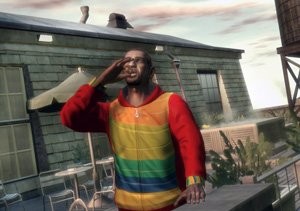 Grand Theft Auto IV
Grand Theft Auto IV
Niko Bellic might tell anyone who cares to listen about how he’s trying to make a fresh start in America, but let’s face it—he’s a stone-cold assassin. In one of Grand Theft Auto IV’s more memorable missions, players have to decide between two targets. Playboy is brash, talkative, flashy and ultimately annoying beyond redemption. Dwayne is a shuffling sad sack who was recently released from prison. Decisions decisions. Side with Playboy and there’s a fat bit of cash in it for you. Listen to Dwayne and get an entirely different set of goodies. While $25,000 might sound like a lot of make-believe money, it’s not worth it in the end. By eliminating Playboy, players get access to his convenient safehouse, Claude’s outfit from GTA III and Dwayne’s friendship. Great! Another bowling partner.
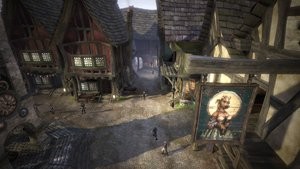 Fable II
Fable II
Fable II is full of weighty choices with long-lasting repercussions. In a particularly diabolical move, one of the player’s earliest decisions is also one that bears the biggest consequences. As a child itching to escape the slums of Bowerstone Old Town, players are asked to help track down some missing arrest warrants. Once they’re collected, a choice must be made: give them to the guard who lost them or to a petty criminal. Players who side with the law will return years later to find an Old Town free from crime and nicely restored. Players also get a discount on all the stalls in that part of town. Those who decide to give in to their seedier impulses change the direction of the city’s development, too. Instead of an idyllic makeover, however, Old Town becomes the Bowerstone Slums. As the name suggests, it’s run down and festering with thugs, criminals and other ne’er do wells. Whatever your decision, it’s one that will last throughout the rest of your game.
Obviously, not every game handles player choice as well as the preceding examples. Here are a couple of games that are cautionary tales on how not to handle big decisions:
![]() Avatar: The Game
Avatar: The Game
Before Ubisoft shipped Avatar: The Game, it made a big noise about the deep moral choices it would force players to make. In practice, that choice is essentially between siding with amoral, mustache-twirling murderers or the noblest of the noble-savage archetypes we’ve seen. And how is that choice made? “Shoot him! That’s an order!” “No, shoot him, instead.” “Shoot him! That’s an order!” Take your time; they’ll wait. Infamous
Infamous
The whole point of giving players a choice in a game is to allow them to shape their own experience. That means that all major decisions should have different results, or else players will get the feeling that their choices don’t matter. For the most part, Infamous does a decent job of giving players two routes through any situation, with different rewards for each path. However, Sucker Punch totally dropped the ball on one of the most dramatic choices in the game. The antagonist, Kessler, has Cole’s girlfriend on the roof of one building, and a bunch of doctors on the roof of the other. You have to choose: will you save the doctors for the greater good of the struggling city, or be selfish and save the one you love? The problem is this: it doesn’t matter. Your girlfriend is always on the opposite building, and she dies no matter what you do.

Get the Game Informer Print Edition!
Explore your favorite games in premium print format, delivered to your door.
- 10 issues per year
- Only $4.80 per issue
- Full digital magazine archive access
- Since 1991

